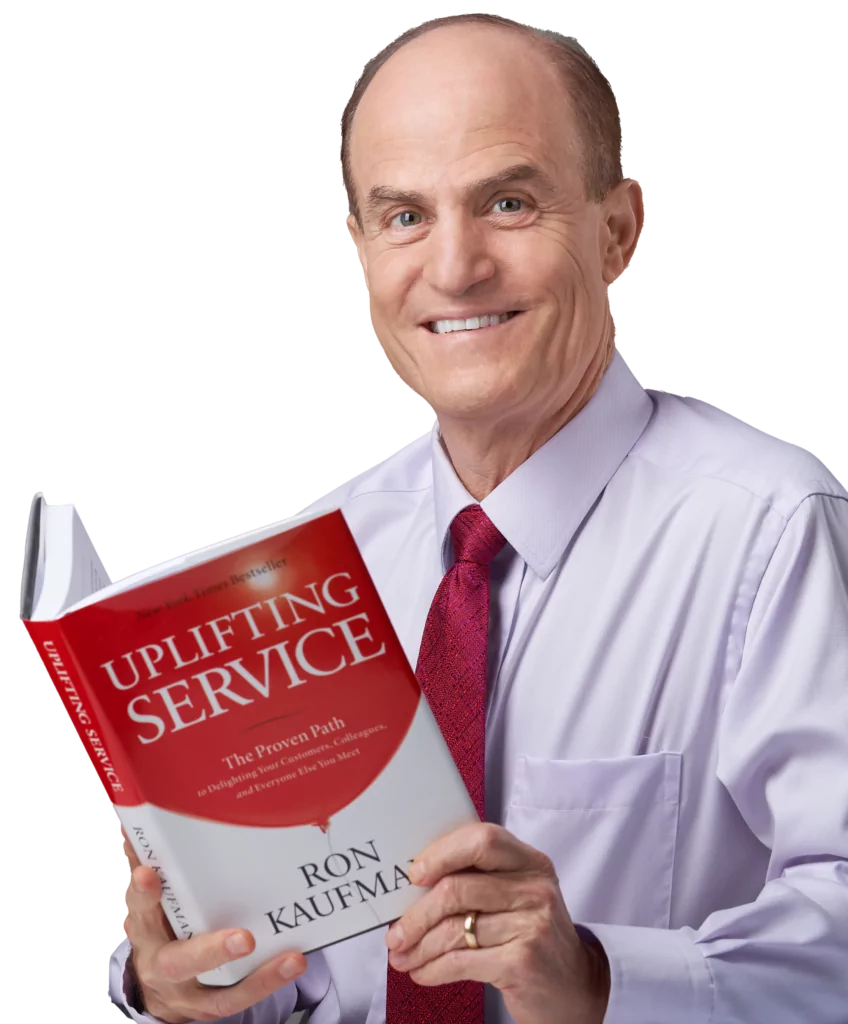https://RonKaufman.com/Subscribe
It’s time to acknowledge an important truth – business can and should do more. For decades, profit and shareholder value have reigned supreme as the top priorities of most businesses. The result has been lots of wealth, productivity, and technological advances… but often at the expense of the very customers, employees, and communities that the business depends on for its existence.
What about now? Customers and employees want to do business with organizations who reflect their own values. And in an increasingly competitive global market – they have other options. So it’s worth getting clear on how your organization will contribute to the world. Because more and more, your customers, employees, and in the communities in which you operate will demand that you do so.
Indeed, as our world faces economic upheaval, environmental disaster, health crises, and political chaos, we will all be called on to serve better, care more, and make a real contribution. The people and organizations who step up to serve are the ones who will thrive. That’s a lesson I first learned from my mother, and I’ve seen it hold true repeatedly in my years of helping organizations uplift their service.
Watch the video to see what I mean…
Join the community and receive free resources, ideas, and invitations.
Below is an Autogenerated Transcript
Let me tell you about my mom. My mom’s the one who said, “Ron, you know, life is about ‘Why don’t you go out there and serve the whole world?’” She didn’t say it that way. She demonstrated it to me with her life. That’s my “serve the world”. That’s my mom. At seven years old. That’s her immigrant card at Ellis Island. Those of you who know Ellis Island in New York, it’s where every immigrant would enter the United States during that time. And the year was 1938. Well, 1938 if you’re coming out of Germany, Hitler’s coming to power. And it’s not a good time to be a Jewish person over there. And at seven years old, she got out, didn’t speak English, but came to the United States. Most of the rest of the family, except for the Durex, didn’t make it. That’s called Auschwitz. And if you haven’t been there to see a gas chamber, you need to go. So you get a sense of how stupidly bizarre humans can be unless we bring the best of ourselves out and help each other bring the best of themselves out. Get it?
Connect the history that you love with the story that you live and the future that you create. And that’s mom. And she didn’t hang on to that, like, “Oh, what happened to the family members?” and all that kind of stuff. Yeah, there was a wound. But how many times does that happen to you, too? You get hurt in life, you get wounded, you get cut. You like it? No. What happens? You bleed. Where’s Rusty? Yeah, we saw that last night, right? You can be here at 3:30 to hear his version of this. Every single one of us as human beings is going to get hurt. That’s part of being a human being. Right? You might go, “Oh, this bad thing happened.” “Oh, I didn’t expect that.” “Oh, somebody betrayed me.” And what do you do? You bleed until it becomes a scab, right? Starts to heal over. And what’s a scab like? “Oh, don’t touch it.” “Oh, it doesn’t look pretty.” “Oh, I don’t like it.” But eventually, if you take care of it, a scab will heal and become a scar. And you think about scar tissue. It’s tougher. Right? It’s like a broken bone. When it heals, it’s actually stronger. So there may be something in your history, you go, “Oh, I don’t love that.” And what I’m saying is, but you can! You can look back and say, “No, that was a horrible thing that happened to me.” You look back and say, “That’s part of what happened to me.” Alright? And then take it out and do something with it. Like Mom did. Serve the world. She taught high school for 20 years, and then she was a travel agent, sending people into the world for 20 more years. And so that’s what I do.



